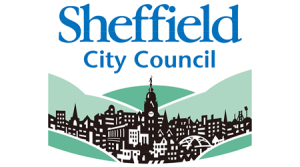Evaluating Sheffield City Council's smoking cessation incentive scheme for priority groups
This project is evaluating Sheffield City Council's smoking cessation incentive scheme for priority groups, aiming to assess its effectiveness and inform future service improvements.
Introduction
Smoking remains a leading cause of preventable illness and premature death in the UK, significantly contributing to health inequalities. To address this, last year Sheffield City Council initiated a pilot scheme offering financial incentives to encourage smoking cessation within specific priority groups, including individuals with mental health conditions, those in social housing, and people receiving drug and alcohol support.
Under Sheffield City Council's smoking cessation incentive scheme, participants could earn up to £200 in vouchers for successfully quitting smoking for 12 weeks. This included an initial £20 for setting a quit date, followed by £40, £60 and £80 at four-week intervals, providing they remained smoke-free as confirmed by carbon monoxide readings (6ppm or below). For remote clients, in-person verification appointments were required at each stage.
This project is a comprehensive evaluation of the incentive scheme. Our research aims to understand its effectiveness in supporting individuals to quit smoking and sustain their smoke-free status. By rigorously assessing the scheme's implementation, acceptability and impact, we intend to provide crucial evidence that will inform future policy decisions and enhance smoking cessation services not only in Sheffield but potentially across the UK.
Project aims
The overall aim of this evaluation is to explore the effectiveness of Sheffield City Council's smoking cessation incentive scheme in encouraging individuals to make a quit attempt and maintain smoke-free status. The evaluation will also provide valuable recommendations for future smoking cessation service improvement and public health policy.
Specifically, the evaluation will investigate:
- The strengths and weaknesses of the incentive scheme.
- How the scheme can be adapted and improved for priority groups.
These overarching questions will be addressed through four key research questions:
- Acceptability to staff: What is the acceptability of the incentives scheme to staff delivering it? This includes exploring facilitators and barriers to delivery, staff experiences, perceived implications for uptake, and how the scheme meets different client needs.
- Equity and acceptability to service users: What is the acceptability of the incentives scheme to service users? This will involve understanding their experiences, and the facilitators and barriers to their participation.
- Engagement and effectiveness: To what extent is the incentives scheme utilised by and effective for different client groups? This will look at uptake, rates of being lost to follow-up, and quitting rates compared to those not receiving incentives.
- Value for money: How does the introduction of an incentives scheme affect the overall service value for money in terms of the cost per quit at 4, 8, and 12 weeks?
Methods
This evaluation employs a mixed-methods approach.
Qualitative data collection will involve interviews and focus groups with service staff and key stakeholders (service providers, managers, commissioners and smoking cessation advisors). Additionally, 12-15 interviews will be conducted with service users from target priority groups who were involved in the incentives scheme, exploring their perspectives and experiences to understand the scheme's feasibility, acceptability and factors that could improve engagement.
Quantitative data will be collected from routinely available Smokefree Sheffield service data. This includes service user engagement, quitting outcomes at 4, 8, and 12 weeks, and scheme implementation costs. Descriptive statistics will show uptake, loss to follow-up, and quit rates across client groups and referral sources. The evaluation will also estimate the additional costs of providing the incentives scheme (vouchers, staff time, administration, and management) to assess its impact on the overall cost per quit.
The qualitative and quantitative findings will be analysed separately before being brought together at a review meeting with Sheffield City Council stakeholders to generate recommendations for future service provision.
Impact
The findings of this evaluation will provide Sheffield City Council with evidence to understand the effectiveness of this public health intervention and how Sheffield City Council's smoking cessation incentive scheme might increase engagement and success in quitting smoking among priority groups.
This will help shape current and future service delivery, and the translational knowledge produced will also benefit smoking cessation services and policy decisions more broadly.
The project also aims to upskill council and Smokefree Sheffield team members by involving them in the methodology, enabling them to conduct and repeat aspects of the evaluation in the future.
Key project information
This project is funded by Sheffield City Council.
Dates
March 2025 – October 2025
University of Sheffield team
Dr Duncan Gillespie (Co-PI)
Dr Nicholas Woodrow (Co-PI)
Dr Joe Hulin
Sheffield City Council team
Ben Arnold
Sarah Hepworth
Key contact
You might also be interested in…
-
SARG researchers present on economic modelling and wastewater surveillance at European Public Health Conference
Two researchers from the Sheffield Addictions Research Group (SARG), Dr Charlotte Head and Dr Esther Chanakira, will showcase innovative local-level tools for policy design, including economic modelling and wastewater surveillance, at the European Public Health (EPH) Conference in Helsinki from 11–14 November 2025.
-
SARG researchers to present at European nicotine and tobacco conference
Two researchers from the Sheffield Addictions Research Group (SARG), Esther Moore and Professor Hazel Squires, will present their latest findings at the annual conference of the European Chapter of the Society for Research on Nicotine and Tobacco (SRNT-E).
-
SARG showcases research at School of Medicine and Population Health event
Researchers from SARG are set to showcase their work at the University of Sheffield's School of Medicine and Population Health Research and Innovation Meeting 2025.


